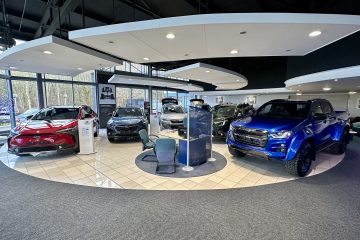Vauxhall is to become a zero-emission only brand by 2028. The carmaker plans to sell only electric passenger cars, while its light-commercial vehicle (LCV) line-up will feature both battery and hydrogen-based electric models.
The 2028 deadline means the carmaker will have switched to an electric-only fleet seven years ahead of the UK government target of 2035.
Today, Vauxhall already offers a selection of electrified models – there are ten available to order, from the Corsa-e supermini to the large Movano-e van. A further battery-electric model will follow by mid-decade in a new interpretation of the classic Manta, shown recently as a concept but scheduled for production. The successors of the Vauxhall Crossland and Vauxhall Insignia will also be electric.
Vauxhall is on a mission to electrify Britain and provide vehicles that perfectly meet UK motorists’ needs. In the near future, this will include driving ranges of between 310 miles, and 497 miles, and a rapid-charging capability of 20 miles per minute.
Ten electrified Vauxhall models are already available in 2022:
Passenger Cars
- Corsa-e
- Mokka-e
- Astra Plug-in HYBRID-e
- Astra Sport Tourer Plug-in HYBRID-e
- Grandland Plug-in HYBRID-e
- Combo-e Life
- Vivaro-e Life
Light Commercial Vehicles
- Combo-e
- Vivaro-e
- Movano-e
The All-New Astra, already available with plug-in hybrid technology, will be available as a fully electric version from 2023 in both hatch (Astra-e) and estate (Astra-e Sport Tourer) guises.
Vauxhall Manta to return
By mid-decade, Vauxhall will reinvent the Manta as a purely electric car. Shown last year as a concept, the carmaker has decided to put the vehicle into production, and use it to spearhead its electric-only drive.
It is unclear at present if the concept’s specifications will transfer to the production model, but if they do, the car may be capable a 124-mile range thanks to its 31KWh battery, with a charging time of 0-100% in four hours.
New gigafactory needed
Together with partners Total/Saft, Stellantis and Vauxhall-Opel founded the “Automotive Cells Company” (ACC). Shortly after its inception, Mercedes-Benz was also announced as a collaborator in the company.
ACC is planned to be ‘a world-class player in the field of developing and producing high-performance batteries for the automotive industry’. In addition, the partners announced that they would increase ACC’s industrial capacity in Kaiserslautern, Germany, to up to 32GWh. This will see a true gigafactory for modern battery cell production created in a region that is a traditional location for component and engine production.
Carmakers are increasingly investing in gigafactories as they look to shorten the supply chains surrounding EV battery manufacturing. Currently, most production takes place in Asia. However, the shipping of batteries not only means long lead times, but is not sustainable. Therefore, a network of gigafactories in Europe is required to meet anticipated demand.



